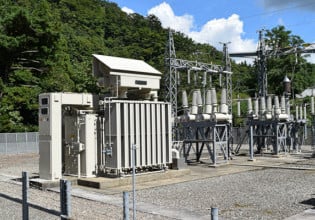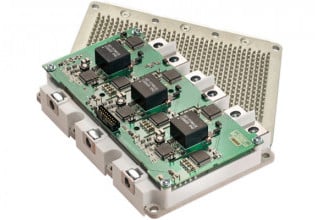Royal Philips Electronics (NYSE: PHG, AEX: PHI) today announced the introduction of I²C Logic devices based on the Fast-mode Plus (Fm+) specification. The new I²C Fast-mode Plus specification goes up to a frequency of 1 MHz (1 MB/s) — more than twice the frequency of previous I²C-bus speed specifications — and is backward compatible with existing Fast-mode and Standard-mode devices. In addition, Fm+ increases the total possible capacitance by a factor of 10, enabling longer distance transmission at slower bus speeds without requiring buffers. This allows engineers to create more flexible system designs at higher speeds when more bandwidth is needed, or use larger buses for emerging applications in LED and architectural lighting and gaming, which require a larger number of components on a single bus.
"Philips Fast-mode Plus devices allow for more devices on the same bus, faster communication speeds, and longer transmission distances, taking advantage of the advanced features of the new I²C specification," said Dhwani Vyas, general manager, interface product line, Philips Semiconductors. "Fast-mode Plus will help customers improve performance across a wide range of applications, as the I²C bus is used increasingly for maintenance and control of intelligent devices."
The initial wave of Philips products that will support the 1-MHz Fm+ interface include:
The Philips PCA9633, an LED driver equipped with four individual pulse width modulation (PWM) controllers — one for each LED output — and a fifth group PWM that can dim or blink all LEDs with the same value. A new feature in the Fast-mode Plus LED controllers allows software programming of four different addresses that each device will respond to, allowing group and sub-group calls when dimming or blinking groups of LEDs, which will greatly simplify programming. This enables finer-grained control over LED animation and dimming in mobile, entertainment and lighting applications. The higher SDA drive of the Fast-mode Plus LED controllers allows up to 126 devices to operate on the same bus without requiring an extra bus extender on every node.
The Philips PCA9698, a new advanced 40-bit GPIO, offers higher bit widths and makes it easier to control and monitor complex systems. Supporting up to 64 devices on the same bus, the PCA9698 offers several advanced features, including 40 I/O pins configurable to totem pole or open drain; output logic states that can change at the Acknowledge or Stop command; maskable inputs that don't generate interrupts; an Output Enable hardware pin; the GPIO All Call address; and the SMBus Alert function. The Fast-mode Plus I/O expanders can be used across a wide range of applications, such as servers, mobile phones, gaming systems, industrial control, medical equipment and instrumentation.
The Philips PCA9665 bus controller, a master device capable of communicating at I²C-bus speeds up to 1 MHz or on longer buses up to 4,000 pF. It allows standard parallel-bus microcontrollers and microprocessors to function as Fast-mode Plus capable masters and includes a 68-byte buffer to increase the processor's productivity.
The Philips PCA9633 and PCA9698 are available now, and samples of the PCA9665 are available today. The Fast-mode plus devices range from $0.55 to $2.05 USD in quantities of 10,000. Additional I²C products featuring Fast-mode Plus will be sampling in late Q2 2006.






